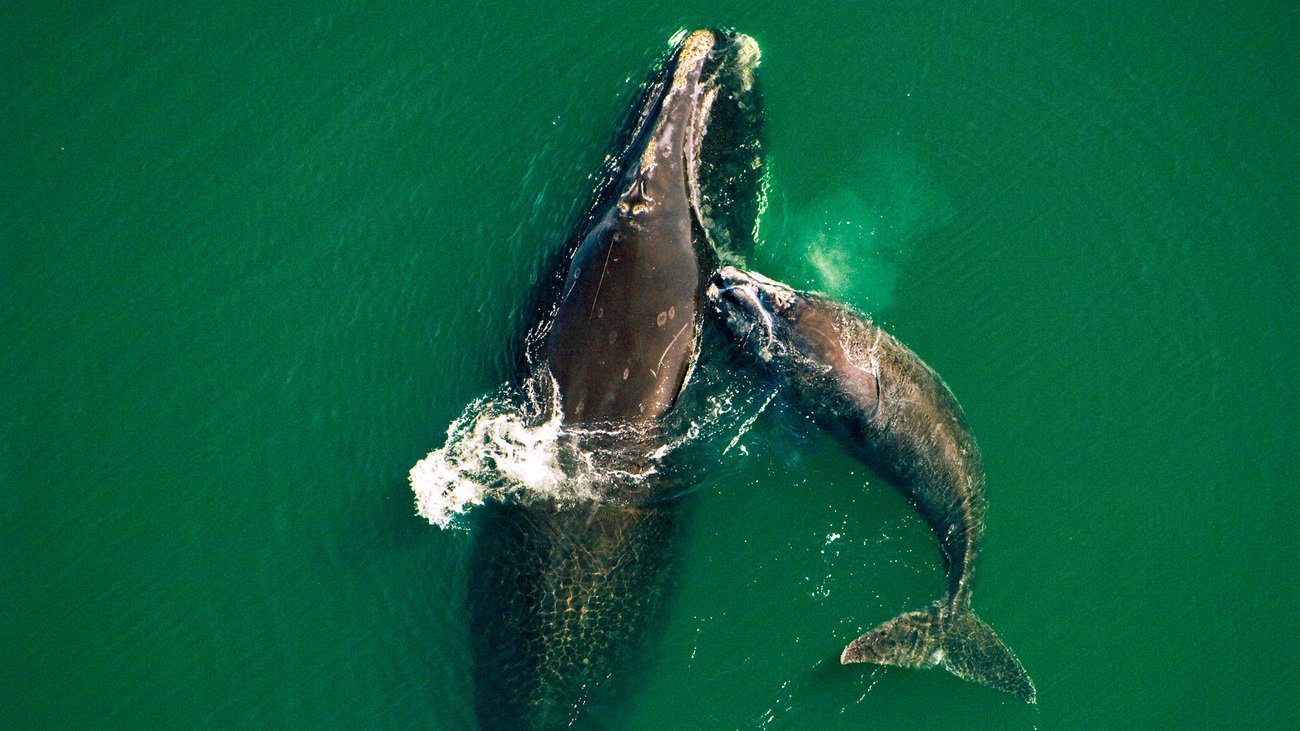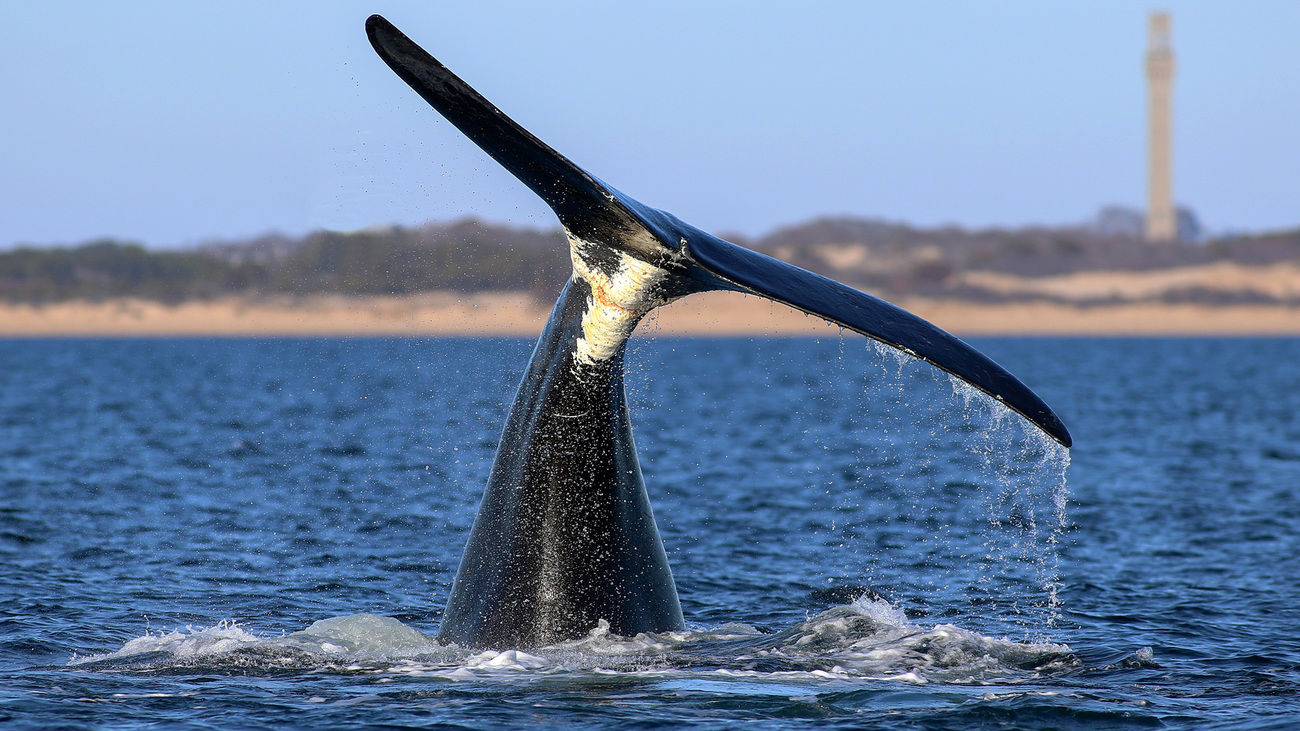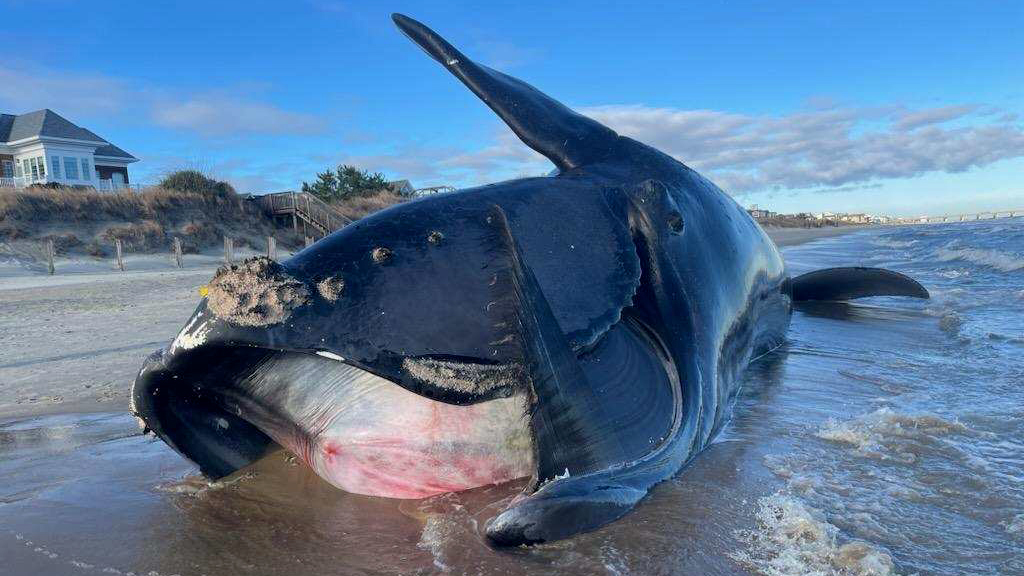Saving North Atlantic right whales from extinction
Saving North Atlantic right whales from extinction

We are at a tipping point
North Atlantic right whales are on the brink of extinction. The population currently sits at about 380 individuals with only around 70 reproductive females. Since 2017, over 167 individuals have been injured or died, which represents over 40% of the current population. With their population steadily decreasing since 2010, this critically endangered species could become functionally extinct within our lifetime.
When it comes to conservation, every North Atlantic right whale matters. The survival of even one whale could mean the difference between saving the species and extinction.
There are about only 380 left ...
Help us save the critically endangered North Atlantic right whale from extinction.
Why is their population plummeting?
North Atlantic right whale migratory routes run right along the eastern coastline of the United States and Canada—one of our planet’s most industrialized areas of ocean. As they migrate, they face two main threats: vessel strikes and entanglement in fishing gear. While vessel strikes often kill the whale within days of injury, entanglements typically lead to a slow and painful death. Entangled whales also suffer from chronic stress and immense physical pain, massively impacting their health and leading to decreased reproduction.
How we’re helping
Through education, advocacy, and grassroots engagement, IFAW has initiated a multifaceted campaign in the U.S. and Canada to drive public awareness, push for regulatory change, and promote innovative solutions to save North Atlantic right whales.
Preventing vessel strikes
IFAW is working in close collaboration with researchers, shipping industries, recreational boaters, NOAA, the US Coast Guard, and partner organizations to advocate for and advance vessel speed limits in critical habitats. As a leading cause of whale mortality, larger species like North Atlantic right whales are especially vulnerable to collisions with all vessel types, sizes, and classes.
Our WhaleAlert app is a tool based on citizen science in which whale sightings submitted by the general public and trusted observers are used to help inform speed zones and trigger alerts to mariners to be cautious of whales present in the area. This ultimately reduces the risk of vessel strikes to whales.

Advancing acoustic, on-demand fishing technology
Modern technologies in the fishing industry could decrease marine mammal entanglements and make the ocean far safer. IFAW is working alongside fishermen to advance trails of innovative on-demand gear that does not depend on fixed vertical buoy ropes. The removal of vertical rope lines from fishing gear will clear the way, reducing entanglements of whales while preserving the heritage and livelihoods of fishermen.
Rescuing entangled whales
IFAW's Marine Mammal Rescue team, based on Cape Cod in Yarmouth Port, MA, is ready to intervene at a moment’s notice when a right whale is observed to be entangled or in poor health. Our team of experienced whale veterinarians and biologists work with NOAA and the Center for Coastal Studies to support challenging cases. We have a custom-built remote drug delivery device capable of administering sedatives that help slow whales down to improve the chances of a successful disentanglement.
In cases of deceased whales, IFAW's Marine Mammal Rescue team has the skills to perform a necropsy to learn more about the whale’s cause of death.

Conducting critical research
IFAW has commissioned the research vessel Song of the Whale to study North Atlantic right whales as they travel through shipping corridors and fishing grounds during this year’s migration. The team’s research will help us understand how and where to reduce the life-threatening risks these whales face every day through round-the-clock surveying to collect data on whale locations, vocalizations, behaviors, health, habitat use, and threats, including underwater noise, vessel strikes, and entanglement risk, as well as human actions near mothers and calves.
Make your voice heard: take action today to save these whales
We are calling on federal agencies in the U.S. and Canada to advance and strengthen North Atlantic right whale protective measures and save this dying population.
Join us today to pull North Atlantic right whales back from the brink of extinction.
Related content
Blog
who’s who? how researchers identify right whales from photos
read moreBlog
rare encounters with marine giants
read moreBlog
researchers track North Atlantic right whales with specialized equipment
read morePress releases
critically endangered North Atlantic right whale found dead in Virginia
read moreBlog
meet the crew tracking North Atlantic right whales aboard Song of the Whale
read moreUpdates
responders disentangle a North Atlantic right whale off the coast of Georgia
read more